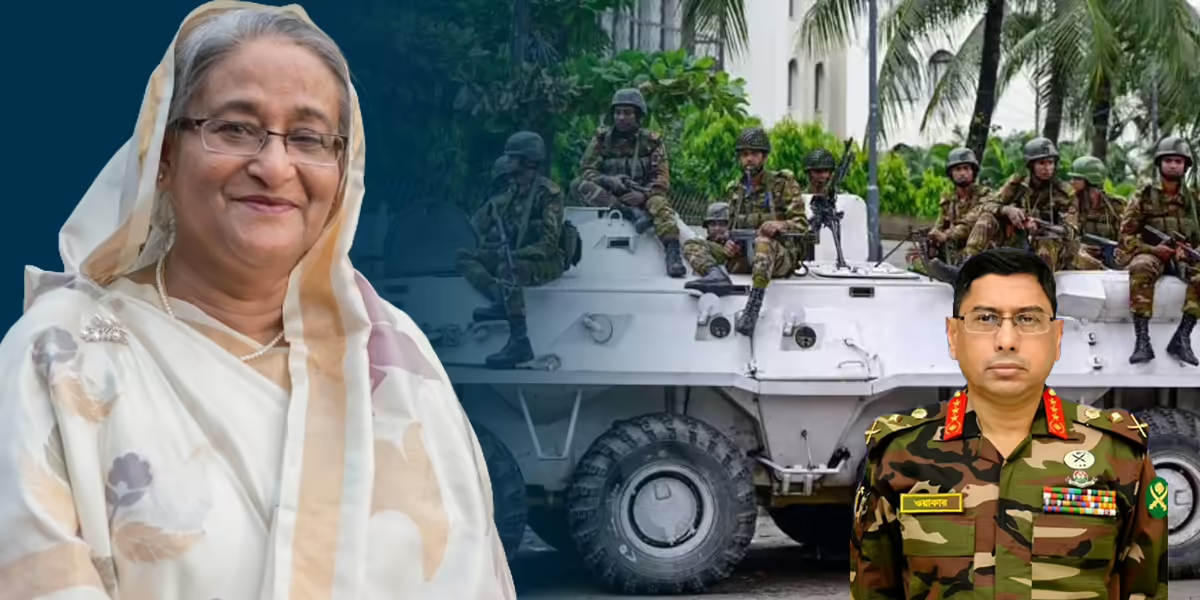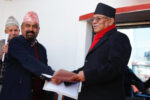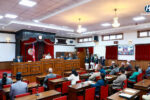DHAKA: Bangladesh Prime Minister (PM) Sheikh Hasina has resigned and left the country on Monday, media reports said, as more people were killed in some of the worst violence since the birth of the South Asian nation more than five decades ago.
She has left Dhaka Palace with her sister for a safe place following fresh protests demanding her resignation, news agency AFP reported.
According to reports, she is taking “safe shelter” away from her residence.
As many as 100 people, including at least 14 police officers, died in clashes in Dhaka on Sunday.
The demonstrations began in Bangladesh with students seeking to end a quota system for government jobs.
In light of the recent surge in violence in Bangladesh that has resulted in at least 300 deaths, Prime Minister Sheikh Hasina departed the country.
Additionally, the Army Chief, Waker-uz-Zaman, addressed the nation today saying that an interim government will be formed soon.
Nearly 300 people have lost their lives during weeks of protests that the authorities have been trying to suppress.
After a night of intense violence on Sunday, which claimed nearly 100 lives, tensions remained high on Monday as protesters planned a march on Dhaka and the army prepared to address the nation.
By early afternoon, however, reports indicated that the atmosphere on the streets had shifted to one of celebration following news of Hasina’s resignation.
In his national address, General Waker-Uz-Zaman, the Chief of Army Staff, called on citizens to trust the army, which would restore peace to the country.
“We will investigate all the killings that have occurred over the past few weeks,” he stated, confirming that the prime minister has resigned and an interim government will now take charge. He also mentioned that he would be meeting with the president.
National television images showed crowds storming the prime minister’s official residence and large groups of protesters celebrating in the streets as news of Hasina’s departure spread, according to Al Jazeera.
The clashes on the streets of Bangladesh intensified on Sunday, bringing the death toll to at least 300, according to an AFP report.
No official statement has been released on the matter yet.
Sheikh Hasina: Controversial Prime Minister of Bangladesh
Bangladesh’s Prime Minister Sheikh Hasina Wazed has resigned and fled the country after weeks of student-led protests escalated into deadly nationwide unrest.
The 76-year-old reportedly escaped to India via helicopter on Monday as thousands of demonstrators stormed her official residence in Dhaka.
This marks the end of Hasina’s tenure as Bangladesh’s longest-serving prime minister, during which she has maintained a firm hold on the country for over 20 years.
While she is credited with overseeing Bangladesh’s economic development, Hasina has faced accusations of becoming increasingly autocratic in recent years.
Born in 1947 in East Bengal to a Muslim family, she was deeply involved in politics from an early age.
Her father, Sheikh Mujibur Rahman, was a prominent nationalist leader who led Bangladesh to independence from Pakistan in 1971 and became its first president.
At that time, Hasina was already known as a student leader at Dhaka University.
In 1975, Rahman was assassinated in a military coup along with most of his family, with Hasina and her younger sister surviving because they were abroad at the time.
After living in exile in India, Hasina returned to Bangladesh in 1981 and took leadership of the Awami League, her father’s party.
She led pro-democracy protests against the military rule of General Hussain Muhammed Ershad, rising to prominence as a national figure.
Hasina first assumed power in 1996 and was praised for negotiating a water-sharing agreement with India and a peace accord with tribal insurgents in the southeast.
However, her government faced criticism for alleged corruption and excessive deference to India.
She lost the 2001 election to Begum Khaleda Zia of the Bangladesh Nationalist Party (BNP).
Both women, leading political dynasties, have dominated Bangladeshi politics for over thirty years and are known as the “battling Begums.”
Their intense rivalry has led to frequent violence, including bus bombings, disappearances, and extrajudicial killings.
Hasina regained power in 2009 under a caretaker government and has weathered numerous arrests, assassination attempts—including one in 2004 that affected her hearing—and multiple corruption charges.
The recent protests represent the most significant challenge Hasina has faced since assuming office, following a contentious election in which her party secured a fourth consecutive term.
Despite growing calls for her resignation, Hasina remained defiant, labeling protesters as “terrorists” and calling for strong measures to quell the unrest.
The unrest began with demands to abolish quotas for civil service jobs but evolved into a broader anti-government movement.
Bangladesh, struggling with rising living costs and a deteriorating economy in the wake of the pandemic, has seen inflation soar, foreign exchange reserves plummet, and foreign debt double since 2016.
Critics attribute these issues to mismanagement by Hasina’s government and argue that the country’s previous economic success primarily benefited those close to her party due to widespread corruption.
They also claim that progress has come at the expense of democracy and human rights, alleging that Hasina’s rule has been marked by authoritarian practices against political opponents, dissenters, and the media. The government and Hasina have denied these allegations.
(Inputs from Agencies)









Comment